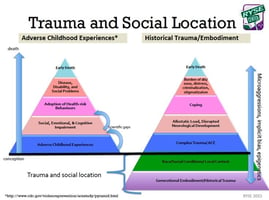However, WHO estimates that as many as two out of every ten children suffer from a mental disorder and the Centers for Disease Control and Prevention (CDC) states that the top five mental disorders in children aged 3 to 17 are ADHD (Attention-deficit/hyperactivity disorder), behavioural or personality disorder, anxiety, depression and autism and/or autism spectrum disorder.
The CDC says that suicide can be a result of the ‘interaction of mental disorders and other factors’ and as such, suicide is the second leading cause of death in adolescents. But either as parents, guardians or teachers, there are some warning signs that can be indicative of mental health disorders and when caught early, some of these disorders can be treated and dealt with. According to WHO, children who get easily aggravated by school, or peer pressures might have an underlying mental health disorder. Often, children who are developing a mental disorder will make excuses not to go to school or study. While bullying is still the number one issue in schools these days, bullying has become a severe threat to a child’s mental health.
Get your signed of Critical Mass: The Phenomenon of Next-Level Living!
Constant worry. Children who are constantly worried all the time might be indicative of an anxiety disorder. As one mother put it: ‘Ella was a worrier. Every morning, she worried that she wouldn’t make the bus on time, even though she hadn’t missed it once all year. And every afternoon, she worried that she wouldn’t get her favorite spot at the lunch table, or that she might have a pop quiz in science class and wouldn’t be prepared.’ At a young age children should be carefree and worry-free, so if a child is constantly displaying signs of anxiety it may be an anxiety disorder.
According to the National Alliance on Mental Illness, approximately one in every five teenagers deals with depression and 8 percent of all teenagers deal with a major depressive disorder. Dr. Charles Raison, who is a professor of psychiatry at the University of Arizona College of Medicine says that parents should take note and intervene whenever their child showcases depressive or withdrawn behavior. Dr. Raison says that when parents think ‘they don’t seem like themselves anymore’ that should be a red light. If the behavior persists for two to three weeks it should be brought to the attention of a health professional.
Drug use. According to the National Institute on Drug Abuse for Teens, 70 percent of all high school kids have tried alcohol, and another 40 percent has smoked or used tobacco and another 20 percent admitted to having used prescription drugs. Using and abusing drugs and/or alcohol can make the symptoms of a mental health disorder worse and can lead to the deterioration of one’s health.
According to the US Department of Health and Human Services, four of five adolescents in every classroom may be suffering from some form of a serious mental illness. Mental illness will then have an adverse effect on their academic careers and Columbia University states that mental health disorders can cause a lack of self-esteem, difficulty concentrating, poor performance in reading, writing and math, frequent absenteeism, repeating grades, and repeated disciplinary problems.






